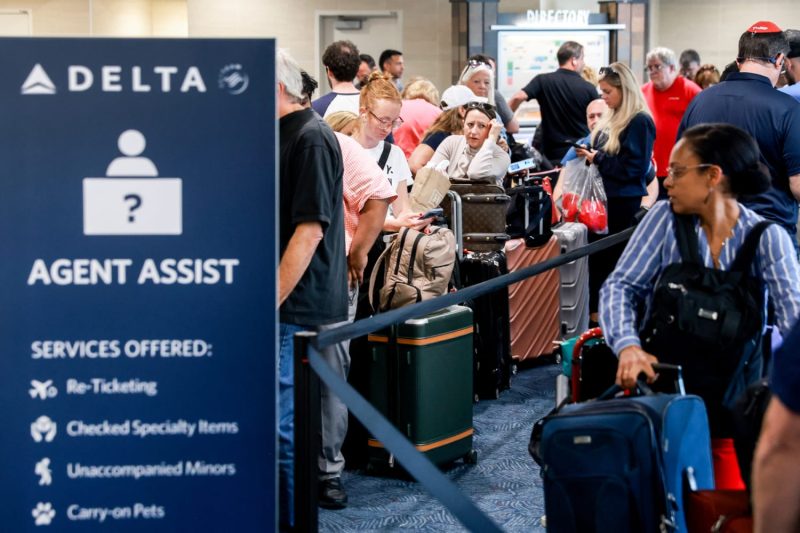Body:
The recent disruptions faced by Delta Airlines have highlighted the increasing challenges that the airline industry must navigate in an era of technological reliance and global connectivity. As the impact of the outage reverberates through the airline’s operations, questions arise regarding the resilience of these systems against such disruptions.
One key issue that arose from the Delta Airlines outage was the domino effect it had on various aspects of the airline’s operations. Flight cancellations and delays rippled through the system, affecting not only the immediate travel plans of passengers but also causing a backlog that could take days to resolve. This highlights the interconnected nature of the airline industry and the need for robust contingency plans to mitigate such disruptions.
Another critical aspect that came to the forefront in the aftermath of the Delta Airlines outage is the importance of transparency and communication during times of crisis. Passengers were left frustrated and confused as information about the situation was slow to trickle down, leading to heightened anxiety and uncertainty. This serves as a stark reminder to airlines that effective communication strategies are vital in maintaining trust and confidence among passengers, even in the face of unforeseen challenges.
The role of technology in modern airline operations cannot be understated, with systems like booking platforms, flight scheduling, and passenger tracking relying heavily on digital infrastructure. However, the Delta Airlines outage brings to light the vulnerabilities inherent in this dependency on technology. As airlines continue to digitalize their operations for efficiency and convenience, they must also invest in robust cybersecurity measures and redundancy protocols to safeguard against potential disruptions.
In conclusion, the Delta Airlines outage serves as a cautionary tale for the airline industry, highlighting the need for greater resilience, transparency, and preparedness in the face of technological disruptions. As airlines strive to provide seamless travel experiences in an increasingly interconnected world, they must also be vigilant in addressing the risks posed by reliance on complex technological systems. Only by learning from past incidents and implementing proactive measures can airlines hope to navigate the challenges of the modern aviation landscape successfully.


































